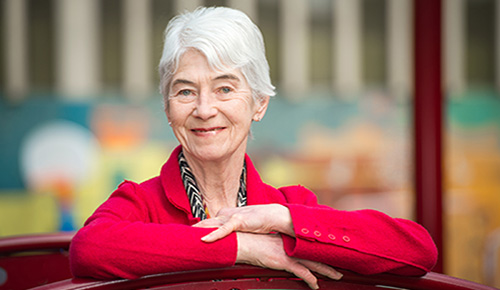
Dr. Gail Andrew has spent nearly 30 years devoted to advocacy and research for those with FASD.
Despite a growing body of work that shows hope for those with fetal alcohol spectrum disorder (FASD), researchers are still fighting intense social stigma in their work, says long-time FASD advocate
Dr. Gail Andrew of the Glenrose Rehabilitation Hospital: "There's a public misconception that they're throwaway kids and will all end up in jail, so why bother?"
Andrew's interest in FASD began in the 1980s, as a pediatrician and behavioural consultant in Camrose. She noticed that some of her young patients didn't respond to treatment and wondered if prenatal alcohol exposure could be the culprit. "Many of my patients were in foster care and had come through a lot of adversity," she says. "It just began making sense with my own self-directed learning."
At the time, there was very little research about FASD and even less public awareness. Andrew became passionate about creating better treatments for children and families touched by FASD. She returned to Edmonton in the late '90s and helped the province develop guidelines for the diagnosis of the disorders, before travelling across the province educating physicians. "I called it my road show," she laughs.
Not long afterward, Andrew helped create a university-affiliated FASD clinic at the Glenrose Rehabilitation Hospital. "We could see that this was an essential health service for a very disadvantaged population," she says. It also enabled more research on the nature of FASD and treatment options for those affected.
Andrew's award-winning advocacy has extended beyond clinical work and research to the broader community, including the justice system. Once, she helped a Yukon prison find better ways to transition inmates with FASD (one-quarter of the prison population) back into the community. On another occasion, she testified at the House of Commons on the role of FASD in the criminal justice system. Andrew has also lobbied extensively for better social supports for children and adults with the disorder, and helped educate diverse professionals and the general public about it - focusing on prevention. "In an ideal world, we'd prevent FASD," she says.
This article comes from Working Wonders: Department of Pediatrics 2016-2017 Year in Review.